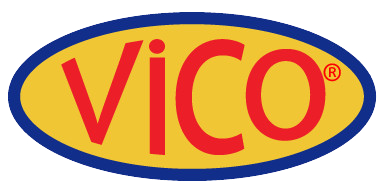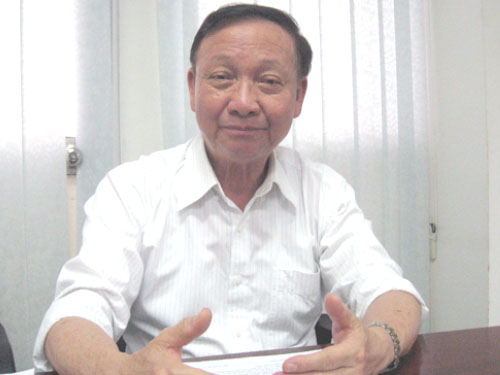-
-
-
Total payment:
-

Why is foundry difficult to develop?
Posted by Vico Casting Export Company Limited at 30/12/2019
Vietnam currently has approximately 500 foundry companies. However, modern technology and equipment enterprises are few and far between. However, these businesses are in a difficult situation. To better understand the aforementioned reasons, we spoke with Mr. Pham Chi Cuong, Chairman of the Vietnam Association of Metallurgical Casting Science and Technology.

Mr. Pham Chi Cuong - Chairman of Vietnam Association of Metallurgical Casting Science and Technology.
VEN - Recently, the government implemented policies to "untie" the casting industry in order to encourage the localization of the country's heavy industry. Can you, as someone who has worked in the casting industry for a long time, briefly summarize the evolution of the casting industry?
The casting market was completely "constrained" in previous years, with only a few factories, such as Thai Nguyen Iron and Steel, having a foundry workshop for casting parts, processing, and repairing equipment. Alternatively, Hanoi Mechanical Factory has a workshop for casting parts for machine platforms or details for machine tools...
Because a number of factories have invested in modern scale and technology, the casting industry has grown in both quantity and quality. For example, Dong Anh Mechanical Company, Mai Dong Casting, Tan Long Casting, Viet Nhat... produce a variety of casting products, such as engine casting, steel pipe... or cement balls, which are also cast in cast iron to serve the cement industry; previously, these products had to be imported entirely by Vietnam, in large quantities but at exorbitant prices.
As a result of the investment, a number of domestic companies have molded their own standard products, serving the heavy industry throughout the country. Because all metal ingots are made from casting, those two products must account for approximately 70% of all mechanical manufacturing, such as shipbuilding, automobile... As a result, Vietnam has developed both shipbuilding technology in recent years. However, enterprises that have invested in equipment and modern technology can only count on ten fingers. However, the consumption volume is still too low, but there has been a clear step forward, from the closed casting place in the factories that require casting to now having factories specializing in casting. assisting the development of the domestic heavy industry
As previously stated, only about ten of the 500 enterprises and casting establishments have modern equipment and technology. So, sir, what about the remaining businesses?
In my opinion, the casting industry is similar to the steel industry in that, while the number of enterprises is large, the number of enterprises with modern technology is too small, resulting in the remaining enterprises with outdated technologies that have not been properly invested. and those outmoded technologies can only meet basic needs. Along with that, casting villages still exist; these craft villages specialize in other areas, such as casting fine art goods or statues for Catholic works...
As you mentioned, the heavy industry is heavily reliant on casting, particularly shipbuilding and automobiles (about 70%). So, do you think the foundry industry will have a chance to develop in the future, when it is expected that localization in the auto industry will reach around 60%?
In fact, because we primarily assemble in Vietnam, the domestic automobile industry has not yet developed. Even the car shells must be imported, and the more complicated the details, the more difficult it is to succeed in localization.
Furthermore, Vietnam wants to localize up to 60%, which is even more unrealistic given that we have gone through a long period but have only localized about 7%. Molded products are also stagnating as a result of the failure to localize the mechanical industry. Only when the automobile, shipbuilding, and other industries can be localized will the casting industry thrive.
So, what solutions do you believe are required to propel the casting industry, or the heavy industry in general, to new heights?
Professionalization and modernization, in my opinion, are the only ways to produce high-quality casting products and cooking alloys from modern medium-frequency furnaces. The alloy steel grade required by the supporting industry will be obtained from there.
Although the government has approved a support mechanism for the mechanical industry, this policy has yet to be implemented. Because the country's economy is in recession at the moment, but automobiles, shipbuilding, machine building... have not been significantly produced, the output of casting is still too modest, which is understandable.
There will be more opportunities for development if the State and the Ministry of Industry and Trade pay more attention to supporting the casting industry. Because this industry is associated with mechanical manufacturing and heavy industry equipment, such as shipbuilding, cement, automobiles, and so on... all of these industries require auxiliary casting.
As a result, the State must have a clear policy for the development of national supporting industries in order to meet both requirements and techniques, product quality, and relatively stable output. Because, if development is required, investment capital, supporting mechanisms for enterprises to invest in equipment, including technology, manufacturing equipment, and quality inspection, even new techniques with control software to mold molds according to the design, the new product will be 100% accurate, and enterprises will only need to clean, because it is not processed as before.
As a result, businesses are in desperate need of government assistance in order to gain access to new technologies as soon as possible. If this is accomplished, it will ensure product accuracy and increase heavy industry productivity, quality, and quantity.
Thank you!
Source: baocongthuong.com.vn











